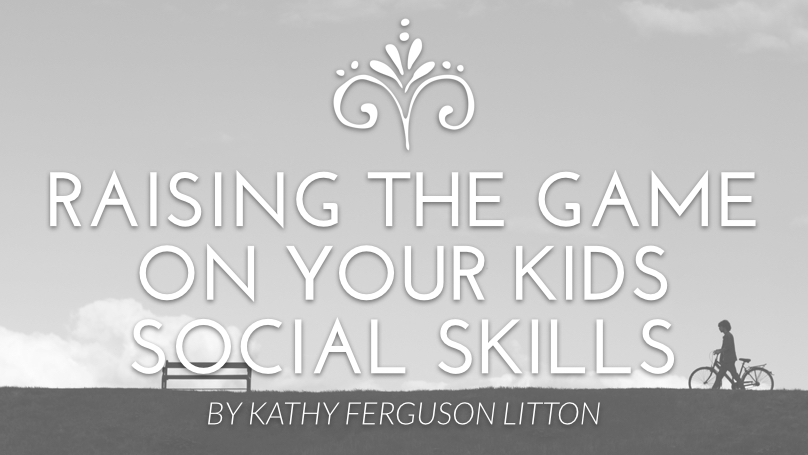We discussed YOUR social skills a few weeks ago. Soon after writing that piece I ran across some staggering results of study regarding children and THEIR social skills. Quite unexpectedly a childs social skills are POWERFUL predictors of success in life.
A study reported on in The Washington Post shows that children who scored well on social competence reports were more likely to have a college degree and a full-time job by age 25 than those who did not. The study is based on data collected beginning in 1991 at schools in Nashville, Seattle, rural Pennsylvania and Durham, N.C. Teachers of 753 kindergartners were asked to rate each student’s skill level in eight areas:
- Resolves peer problems on his/her own.
- Is very good at understanding other people’s feelings.
- Shares materials with others.
- Cooperates with peers without prompting.
- Is helpful to others.
- Listens to others’ point of view.
- Can give suggestions and opinions without being bossy
Children who scored “well” on social competence were four times as likely to get a college degree by age 25 as those who scored “a little.” Children who scored higher were also more likely to have a full-time job by the time they were 25. (Think kids who succeed academically and then get jobs. Now we have your attention.)
What does this mean for parents in the trenches right now? What social skills do kids need? Below are GREAT tips from Yahoo Parenting called One Skill Every Kid Needs to Succeed.
1. Greetings
DO practice looking up and saying “hello” when someone greets him. This can actually be a hard skill for kids to master. Meeting new people, especially new adults, can feel intimidating. Pro tip: Host a “fancy” dinner party at home and try on different roles to practice greeting new people.
DON’T force a quiet child to interact with new people immediately. Allow time for warming up to the situation instead. Watch and wait, move close, then help your child by getting low and modeling the greeting.
2. Conversation starters
DO teach your child to offer a compliment, comment on a common interest or ask a question to get a conversation going. Pro tip: Think about possible topics of interest before you arrive at the destination so kids don’t freeze up.
DON’T force your kids to play with kids who aren’t a good match. Give your child time to explore and find friends on his own terms.
3. Sharing
DO talk about what it means to share. Sharing involves give and take, not just give or take. Practice this in the safety of your home before entering play with others. Ask your child to talk about the good things that happen when kids share.
DON’T force your child to share a special or favorite toy with others. Do you share everything you own? Sometimes kids need something just for them. That’s not selfish; that’s just human.
4. Empathy
DO nurture your child’s empathic tendencies. You know those days when your child wants to build a home for every worm trapped on the sidewalk? That’s empathy talking, and that’s a powerful tool. Talk about what it means to care about and for others. When kids squabble, help them see the other person’s perspective.
DON’T dismiss your own child’s feelings in an effort to protect the feelings of others. When parents model empathy, kids learn how to empathize with others. Listen to your children. Validate their feelings. Empathize with them often. This will help them grow into kind, compassionate, happy and successful adults.
We start to teach “social skills” when we teach children that ALL people are created in the image of God. They need to learn early from the Word of God about loving and respecting others. Yet we are ALSO to help them acquire healthy skills.
Take these tips from Yahoo and run with them. You can’t start too early.
Published September 17, 2015



